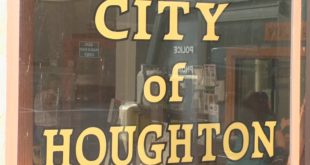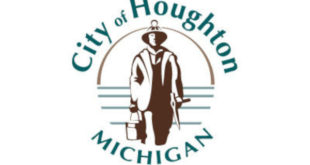Over the past two years PHF has researched the ways in which food insecurities and nutrition affect an individual’s overall health. In an effort to reduce the negative effects of food insecurities, hunger, and poor nutrition, PHF has begun identifying funding strategies to address the community’s awareness to food and the critical impact it has on individual and population health. PHF’s multi-faceted approach focuses on three main approaches, 1) community education 2) access, and 3) affordability.
During PHF’s first round of funding, they identified two main objectives: (1) to create greater awareness throughout the community to the role food plays in overall population health, and (2) to develop and execute the first-steps toward helping to provide nutritious food to people who may be food insecure. Initial awards were given to a Prescription for Health program through Upper Great Lakes Family Health Centers; Market Bucks program offered by the Portage Lake District Library, and Let’s Eat (Community Meals).
It has been identified that, within the four-county service area, the median food insecurity rate was 15.5% in 2014, while the median food insecurity rate for children was 24%. This means over 8,500 of our residents lack access to food at some point during the year.
Experts generally define food insecurities as a household not having adequate access to nutritious foods due to a lack of financial and/or other resources at any given point during the year. Therefore, food insecurities are not limited to specific socio-economic groups, but can affect the entire demographic spectrum through such issues as short growing seasons, transportation problems, or limited availability of fresh, affordable whole foods throughout the year. As a result, many individuals and families may consume the most readily available and economical foods, which oftentimes have limited nutritional value and contribute to the health risks our community is experiencing. Experts agree that lack of physical activity, poor nutrition, and childhood obesity are major concerns in communities throughout Michigan and across the United States. Childhood obesity rates have more than tripled in the past 30 years and throughout Michigan’s Upper Peninsula child and adult obesity rates are one of the most pressing health concerns. Research shows obese children and adults are more likely to be at risk of heart disease, Type 2 diabetes, bone and joint problems, depression, and a variety of other health problems. It is also recognized that food insecurities put teens, adults, and seniors at risk for health conditions. For adolescents, food insecurities may be associated with mood, anxiety, behavior, and substance abuse disorders, while in adults it may be associated with cardiovascular risks.
As PHF has discussed this health concern with community members and other stakeholders, its focus has become much broader than addressing food insecurity rates. Although the PHF remains focused on food insecurity, they are taking a more holistic approach to food and its impact on individual health.
This call for funding proposals will be focused on two separate target demographics with a total funding of $150,000.00 available.
First, PHF is seeking proposals that address children from birth to age twelve (12) years. Lack of proper nutrition can have adverse health effects in individuals of all ages – for example, infants to 3-year-olds who receive too little energy, protein, and nutrients may be at risk for lasting deficits in cognitive, social, and emotional development, while school-aged children who experience severe hunger may be at an increased risk for developing chronic health conditions, psychiatric distress, behavioral problems, and poor self-esteem. Fortunately, improved nutrition, increased environmental stimulation, emotional support, and secure attachment to parents/caregivers can potentially compensate for early undernutrition in children.
Second, PHF will be seeking proposals that address the needs of young adults, more specifically college-aged young-adults.
“US studies suggested that 21-59% of college students experience some form of food insecurity.” (Consumer studies article). Statistics show that about 30.5% of students have to choose between buying food or education expenses throughout their college careers. (Hungry to Learn). These statistics are consistent with local findings. With four (4) institutions of secondary education in the four-county service area, it is important that this demographic not be overlooked. The study Hunger on Campus looked into the other effects of hunger on college students. Absenteeism, not having appropriate course materials, and failing/dropping out are just some of the negative impacts of students that are struggling financially and must choose between their education and food. Because of the lack of current studies, the challenges of college students who are faced with food insecurity are impacted in a much larger capacity than may immediately be understood. Physical health, financial health and academic success are all affected by food insecurity within this demographic. (Consumer studies article).
Proposals that address food insecurity and nutritional needs of these target demographics will be considered for funding. Proposals that integrate food/nutrition with programming components which promote and encourage physical activities, and/or mindfulness will be given preference. PHF also places great emphasis on improving overall community health and food awareness, inclusion, reduction of stigma, and access to healthy foods, and multi-organization collaboration as primary considerations during the preparation of any proposal(s).
Education, access and affordability are key facets of any proposal that will be considered by PHF.
Although not required, Portage Health Foundation strongly encourages all interested applicants to submit a Letter of Inquiry (LOI) prior to submitting a grant application. An LOI helps promote a clear understanding, collaboration, and project outcomes between PHF and grant applicants. Please approach the LOI as an abbreviated grant proposal that PHF can review to determine if a project matches our funding interests and is suitable for formal grant consideration. If an applicant has questions, they are encouraged to contact the PHF offices prior to formal submission of the application or refer the PHF’s FAQ section on their web page.
To help applicants better understand the process and have the opportunity to ask any questions prior to submission, the PHF will be hosting several informational session(s) relative to this call for proposal and its application process on November 1, 2017. Sessions will be held at the following locations:
Baraga County, Lakeside Inn Conference Room @ 10am ET
Ontongon County, Ontonagon Village Offices @ 1pm ET
Houghton, Keweenaw Counties, Portage Health Foundation Offices @ 4pm ET
All interested parties intending to apply for funding support are encouraged to attend one of these informational sessions. RSVP’s for each location are appreciated and can be made by calling 906.523.5920.
Proposal submissions must be received and/or post marked no later than 3:30 p.m.ET on Wednesday November 22, 2017. Please visit PHF’s website (www.phfgive.org) to download an LOI and/or RFP application, which contains specific information and criteria for each RFP. Successful applicants will be announced December 15, 2017.
Applications can be mailed to:
Portage Health Foundation
400 Quincy St. – PO Box 299
Hancock, MI 49930
 Keweenaw Report Your Source for Local News and Sports
Keweenaw Report Your Source for Local News and Sports





